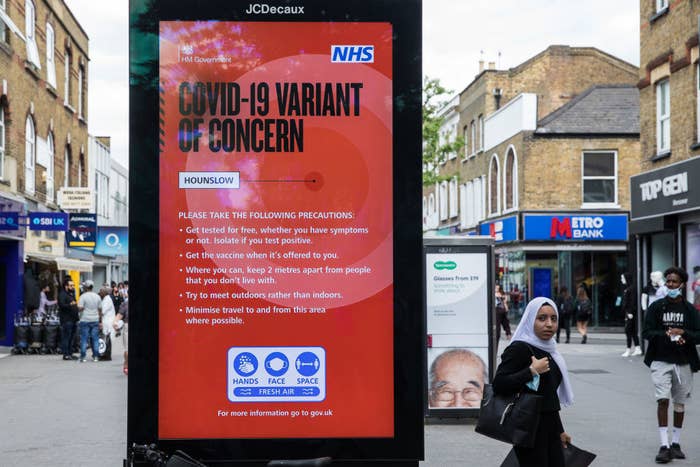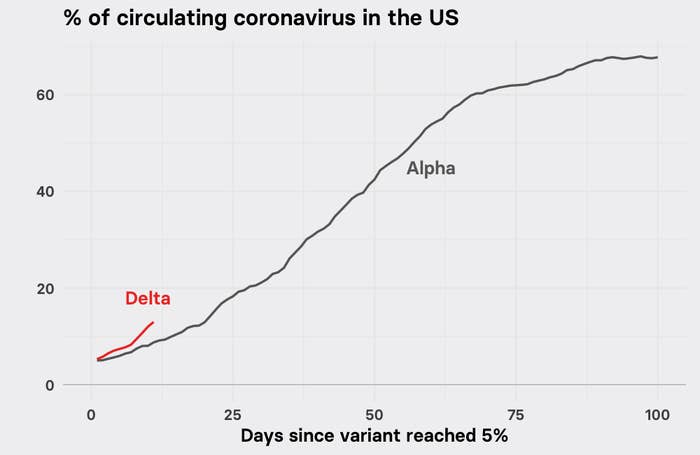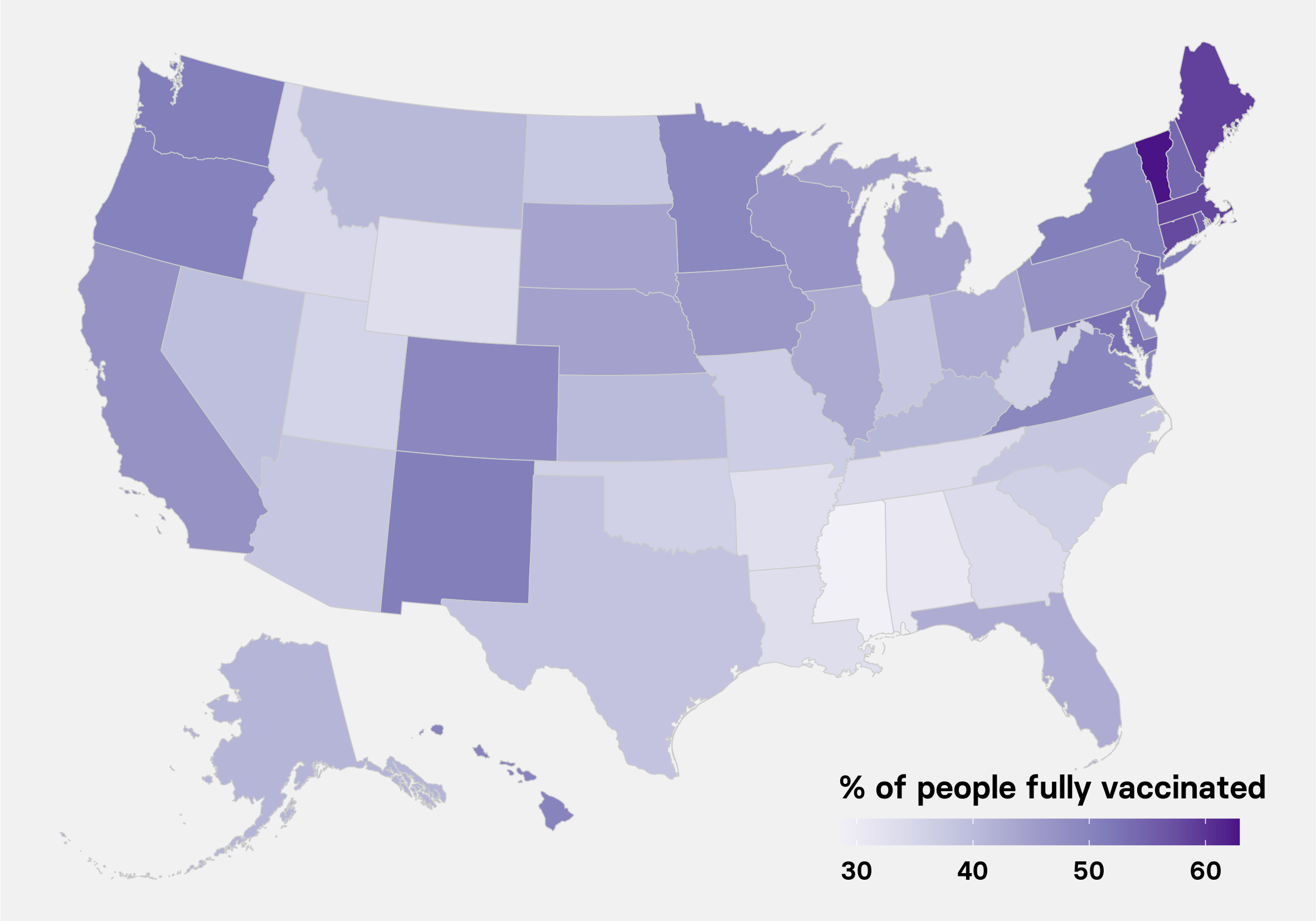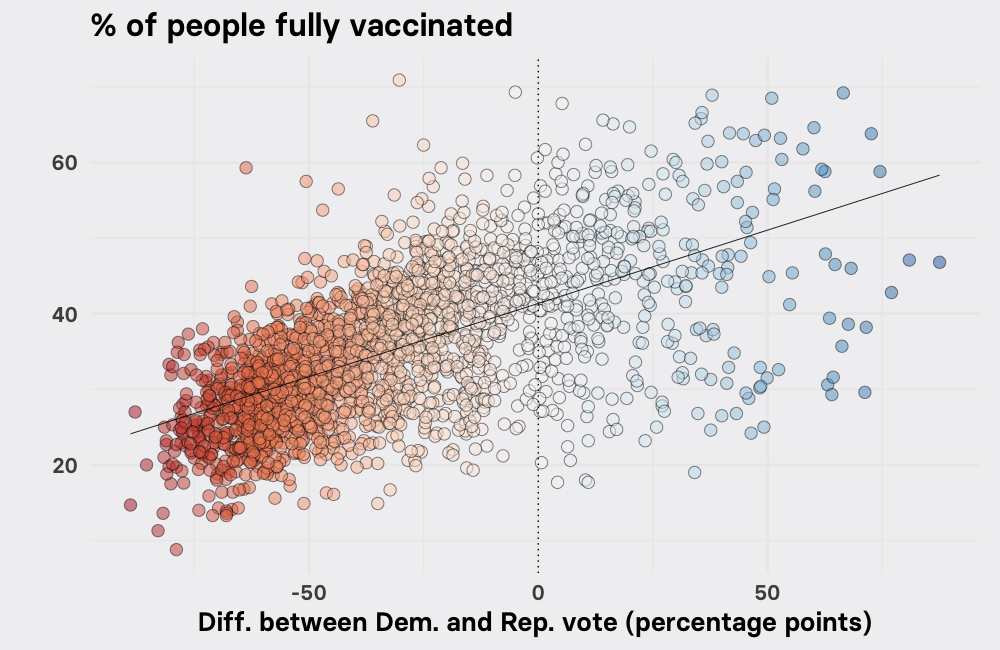
The Delta coronavirus variant, which devastated India and forced the UK to delay lifting its remaining coronavirus restrictions, is now on the rise in the US. What that means for you will depend on whether you are fully vaccinated and where you live.
Experts say we may be about to see the emergence of “two Americas” of COVID: one with high rates of vaccination where the Delta coronavirus variant poses little threat, and the other with low levels of vaccination that will be vulnerable to renewed deadly surges. That divide is driven in large part by partisan politics, with vaccination rates highest in liberal cities and lowest in conservative strongholds across the Deep South and in rural areas across the nation.
“I call it two COVID nations,” Peter Hotez, a vaccine researcher at Baylor College of Medicine in Houston, told BuzzFeed News.
Wherever there are low rates of vaccination, the virus will continue to circulate and mutate, increasing the risk that new, more dangerous variants will emerge. With vaccination across most of the world lagging far behind the US, the Delta variant is likely to be followed by others.
The Delta variant, also known as B.1.617.2, was first discovered in India in late 2020 and is thought to have driven that country’s devastating surge in COVID-19, which began in March. It has since spread to more than 80 countries worldwide, including to the US — where the CDC on Tuesday officially designated it a “variant of concern.”
Data from Public Health England indicate that the Delta variant is between 40% and 60% more transmissible than the Alpha variant, also known as B.1.1.7. First identified in the UK and now the most common variant in the US, the Alpha variant is in turn much more transmissible than earlier forms of the coronavirus.
So far, the available vaccines seem to be offering good protection against most variants. But the Delta variant seems able to escape partial immunity to the coronavirus. Although people who are fully vaccinated still seem to be well protected, those who have only been given one shot of a two-dose vaccine remain more vulnerable.
A study in the UK found that two doses of the Pfizer/BioNTech vaccine were 88% effective against developing a case of COVID with symptoms from the Delta variant — not much different from the 93% efficacy seen against the Alpha variant. But after just one dose, the vaccine was only about 33% effective against the Delta variant, compared to more than 50% against Alpha. It’s unclear how effective natural immunity from a prior infection will be in protecting people against the Delta variant.
There are also hints that the Delta variant may cause more serious disease. A study of cases in Scotland published this week found that the risk of hospital admission with the Delta variant was roughly doubled compared to people infected with the Alpha variant.
“This is a nasty virus,” John Moore, a virologist at Weill Cornell Medical College in New York, told BuzzFeed News.
With the Delta variant now thought to account for more than 90% of new infections in the UK, and with cases and hospitalizations rising once again, Prime Minister Boris Johnson announced on Tuesday that he will delay the removal of remaining coronavirus restrictions in England, originally planned for June 21, by at least four weeks. (Scotland, Wales, and Northern Ireland set their own health rules, but have made similar moves.)
In the US, the Delta variant now seems to be spreading more quickly than the Alpha variant at a similar stage in its climb to dominance, according to data from outbreak.info, a coronavirus tracking project run by researchers at Scripps Research in La Jolla, California.

It’s unclear whether Delta will dominate as quickly and totally as it did in the UK, where it replaced an outbreak driven almost entirely by the Alpha variant. In the US, a larger number of competing variants are circulating, making it harder to predict what will happen, Bette Korber, a computational biologist at the Los Alamos National Laboratory in New Mexico, told BuzzFeed News. But she expects Delta to become the most common variant in the US within weeks. “It’s really moving quickly,” Korber said.
Health experts say that the US could largely protect itself against the Delta variant by quickly boosting rates of vaccination, which have slowed in recent months. But they fear that some people who are not yet vaccinated may look at what happened with the Alpha variant and decide they can afford to wait and see.
In late March, with COVID surging in Michigan and cases starting to rise nationally, CDC director Rochelle Walensky described her sense of “impending doom” about a fourth wave of coronavirus across the US driven by the Alpha strain. But the surge turned out to be small and short-lived.
Given the expected speed of the Delta variant’s spread, and the fact that one vaccine dose isn’t enough to provide good protection, deciding to delay vaccination is risky. “Some of those people are going to get a nasty surprise,” Bob Wachter, chair of the Department of Medicine at the University of California, San Francisco, told BuzzFeed News.

Low vaccine uptake across the South and in rural areas across the country makes these areas most vulnerable to the Delta variant. “I think there’s a decent chance that come winter or fall there will be significant surges and they will almost exclusively strike people who are unvaccinated and strike in regions that have low rates of vaccine uptake,” Wachter said.
But it could be hard to convince people who have so far declined to get vaccinated, given that skepticism seems to be driven in large part by entrenched political allegiances. According to a CBS News/YouGov poll published this week, only 52% of Republicans said they were partially or fully vaccinated, and 29% said they have no intention of getting a vaccine. Among Democrats, 77% said they were already vaccinated, and just 5% said they weren’t intending to get the shots.
Vaccine rollout data at the county level also shows a strong relationship to voting in the 2020 presidential election.

“Somehow we have to break this idea that allegiance to conservatism and the Republican Party has to do with not getting vaccinated,” Hotez said. “It’s really troubling.”
